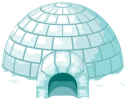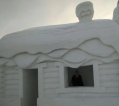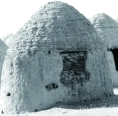1 . Former British Prime Minister Winston Churchill once said, "The British are the only people who like to be told how bad things are." This is definitely true of British comedy. Most people think humor is about happy things, but for the British, the opposite is true. We love to use our cruel sense of humor to complain and be negative.
British comedy, for example, draws a fine line between comedy and tragedy(悲剧). BBC's The Office is a TV show, famous for its dry humor. The main character, David Brent, is a foolish man, and the show's comedy comes from his delusions. For example, he often tells himself that he is loved by everyone but the viewer can see that everyone hates him.
Stupid characters for the audience to laugh at are an old tradition in Britain. In Shakespeare's play Twelfth Night, the character Malvolio is an old man whom people play tricks on. The audience will laugh away, although the reality is that this man is a truly tragic individual.
This side of British humor is reflected in friendships as well. At university, my friends and I would always laugh at one another. I had an American friend who actually found this sarcasm(挖苦)quite upsetting. She didn't realize that in Britain, the better friends you are with someone, the more you laugh at them.
This approach—laughing at everything—may sound rather depressing(让人郁闷的), but our strange humor played a big part in British history. In World War II, along with a stiff upper lip(坚定沉着), the British got through it by laughing. What else was there to do?
There is a saying in English: "Laugh and the world laughs with you; cry and you cry alone." If you are ever on the receiving end of British sarcasm, you may feel like crying, but it's best to just laugh it off!
1. How is British humor special?| A.It is often surprising and boring. |
| B.It is often about negative things. |
| C.It often laughs at happy people. |
| D.It often makes happy things depressing. |
| A.British people will not laugh at their good friends |
| B.there is a great difference between comedy and tragedy |
| C.stupid people are often treated well in Shakespeare's plays |
| D.British humor used to give people courage in face of sufferings |
| A.Keep silent. |
| B.Cry as you like. |
| C.Don't take it seriously. |
| D.Try to hold back your laughter. |
| A.Do gardening. | B.Collect stamps. | C.Protect the plants. |
3 . Although English is not as old as Chinese, it is spoken by many people around the world every day. English speakers are always creating new words, and we are often able to know where most words come from.
Sometimes, however, no one may really know where a word comes from. Did you ever think about why hamburgers are called hamburgers, especially when they are not made with ham? About a hundred years ago, some men went to America from Europe. They came from a big city in Germany called Hamburger. They did not speak good English, but they ate good food. When some Americans saw them eating round pieces of beef, they asked the Germans what it was. The Germans did not understand the question and answered. “We came from Hamburger.” One of these Americans owned a restaurant, and had an idea. He cooked some round pieces of beef like those which the men from Hamburger ate. Then he put each between two pieces of bread and started selling them. Such bread came to be called “ hamburgers”. Today “hamburgers” are sold in many countries around the world.
Whether this story is true or not, it is certainly is interesting. Knowing why any word has a certain meaning is interesting, too. The reason, for most English words, can be found in any large English dictionary.
1. According to the writer, English is .| A.as old as Chinese | B.older than German |
| C.not so old as Chinese | D.very difficult to learn |
| A.a kind of food | B.a round piece of beef |
| C.the name of a village | D.a city in Germany |
| A.few Americans like hamburgers |
| B.hamburgers were made by Germans |
| C.hamburgers are made with ham |
| D.hamburgers were sold all over the world about a century ago |
| A.Where all the words come from |
| B.Where those Germans came from |
| C.The reason why a word has a certain meaning. |
| D.The reason why English is spoken around the world |
| A.China because it has a long history |
| B.England because Germans don’t speak good English |
| C.the round pieces of beef which those people from Hamburger were eating |
| D.the city of Hamburger in Germany |
The igloo if a house built of ice or snow and is still in use today in more primitive areas of Canada’s north. The Inuit people find them the best type of housing, especially when away from home on hunting or fishing trips.The igloos used o such trips are smaller and only temporary homes to be used for a few nights at most. Igloos are dome shaped(圆顶形的)and made of blocks of ice or snow.First a hole is dug out in the snow and this forms the lower part of the igloo.Then the blocks of ice or snow are built in a slope inwards and upwards from this base.Often a short tunnel leads to the door.This prevents the cold winds and snow blowing into the structure.
Tipis(or tepees)are the conical(圆锥形的)tents used by the majority of native People
across America.Some Canadian aboriginal people still prefer them to other types of housing. These structures are formed by a frame of poles covered with, usually, either buffalo hide(水牛皮)or birch bark(桦树皮).A hole at the top lets out the smoke from the cooking fires. Native people mostly travel from place to place, following their food supple across the countryside. Tepees are easy to take down, carry and put up at the next stopping place.
Another type of house iS the long house.This is exactly what the name suggests-a long narrow building that could house ten to twenty families.Built of poles covered with hides, the houses are common to the Iroquois people of Ontario and New York.These structures are also on the west coast by the Squeamish Indians.They are usually occupied by an exended family and divided into individual rooms,each with its own cooking fire.They are decorated with totem emblems (图腾标志)and a totem pole by the front door tells the history of the family.
1. Which of the following pictures matches with the igloo?
A.  | B.  |
C.  | D.  |
| A.catch the animals | B.decorate the igloo |
| C.fasten the igloo | D.keep the igloo warm |
| A.It has a hole at the top. |
| B.It is made of poles covered with hides. |
| C.lt can be easily carried everywhere. |
| D.It has a firm base made of ice. |
| A.Squeamish Indians | B.Long houses |
| C.Families | D.Individual rooms |
| A.In a medical journal. | B.In a science report. |
| C.In a culture magazine. | D.In a biology textbook. |
Foreign tourists are often confused(困惑的)in Japan because most streets there don’t have names. In Japan, people use landmarks(地标)in their directions instead of street names. For example, the Japanese will say to travelers, “ Go straight down to the corner. Turn left at the big hotel and go past a fruit market. The post office is across from the bus stop.”
In the countryside of the American Midwest, there are not usually many landmarks. There are no mountains, so the land is very flat. In many places there are no towns or buildings within miles. Instead of landmarks, people will tell you directions and distances. In Kansas or Iowa, for example, people will say, “ Go north two miles. Turn east, and then go another mile.
People in Los Angeles, California, have no idea of distance on the map. They measure distance in time, not miles. “ How far away is the post office?” you ask. “ Oh,” they answer, “ it’s about five minutes from here.” You say, “ Yes, but how many miles is it?” They don’t know.
It’s true that a person doesn't know the answer to your question sometimes. What happens in such a situation? A New Yorker might say, “ Sorry, I have no idea.” But in Yucatan, Mexico, no one answers “ I don't know”. People in Yucatan believe that “I don't know” is impolite. They usually give an answer, often a wrong one. A tourist can get very, very lost in Yucatan!
1. When a tourist asks the Japanese the way to a certain place, they usually _______ .
| A.describe the place carefully |
| B.show him a map of the place |
| C.tell him the names of the streets |
| D.refer to recognizable buildings and places |
| A.New York. | B.Los Angles. |
| C.Kansas C. Iowa | |
| A.in order to save time | B.as a test |
| C.so as to be polite | D.for fun |
| A.It’s important for travelers to understand cultural differences. |
| B.It’s useful for travelers to know how to ask the way properly. |
| C.People have similar understanding of politeness. |
| D.New Yorkers are generally friendly to visitors. |



